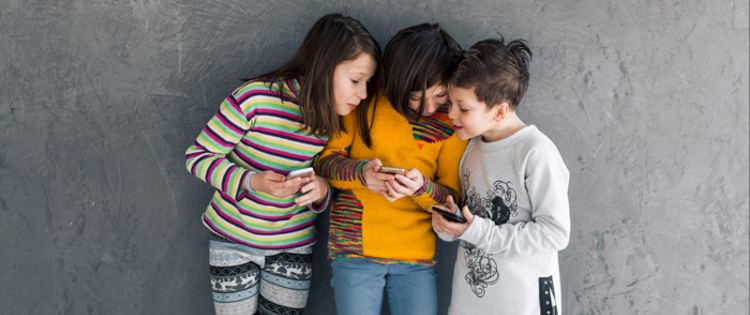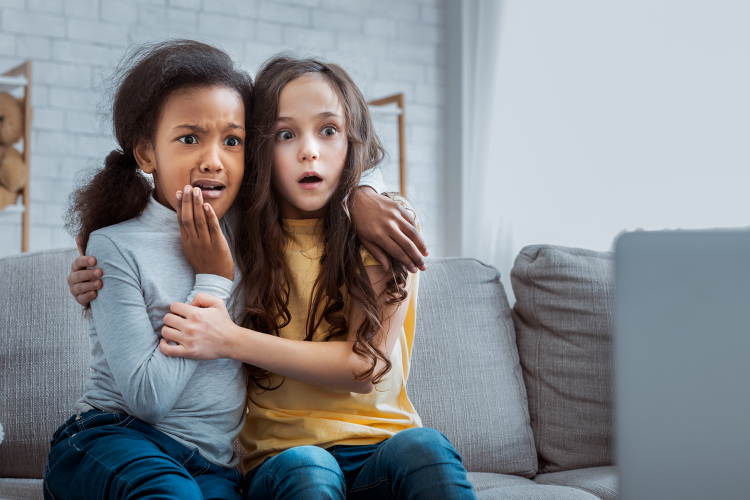
Should I let my children use Facebook’s Messenger Kids app?
Should I let my children use Facebook’s Messenger Kids app? https://mediatrics.com/wp-content/uploads/2017/12/FBmessengerAtM.png 750 315 Mediatrics Mediatrics https://mediatrics.com/wp-content/uploads/2017/12/FBmessengerAtM.pngQ: I recently read about Facebook’s new messenger app for kids. My kids, who are 6 and 9, have their own smartphones and currently use them for calling/texting only (I think). We’ve avoided using social media apps, as I worry about the content and protecting their privacy. Is Facebook’s new app a good “gateway” app for our family to use?
~ Message Mom Boston, MA
A: Dear Message,
Your concern for your children’s well-being in our increasingly complex social media environment is well-founded at a time when mobile interactive media are reaching out to younger and younger children as users. To best answer your question, we need to think deeply about not only the app, but the children who will be using it and your strategies in parenting them.
Facebook, which seeks “to give people the power to build community and bring the world closer together” has tried to live up to their mission with Messenger Kids. Facebook asked the Center on Media and Child Health (CMCH) and other experts in child development, children’s media, and online safety, to advise them on the design for Messenger Kids. CMCH did not accept any pay or research support from Facebook for our advice, and we have a policy that we never endorse any product or program. As pediatricians bound by the Hippocratic Oath, our duty is to interpret the scientific evidence to optimize the health and development of the children and help the parents who care for them. Those of us on the expert board advised Facebook, hoping that they would follow some or all of our recommendations, because with over 2 billion users, Facebook has unparalleled power to alter the media environment, for better or for worse. Our message to Facebook was that the key to connectedness and community is not driven by algorithms – it begins with families.
Preparing for Messenger Kids, Facebook conducted in-depth focus groups with parents from across the country to discuss and learn from their concerns, hopes, and needs for raising healthy children in today’s digitally-connected world. While many parents are themselves on Facebook, they see their kids using image-based social media like Instagram and Snapchat and migrating away from Facebook (in part because Mom and Dad are there…). They do not know the wide array of social media platforms and they are scared by stories of cyberbullying and sexting, so they see social media as a digital Wild West. Despite the Children’s Online Privacy Protection Act (COPPA), a law intended to prevent children under 13 from using social media applications, thus protecting them from privacy violations and targeted advertising, national surveys show that 4 out of 5 children begin using social media between the ages 8 and 13. Failing to keep up with the changing digital landscape and how society has evolved in its use, COPPA has fallen victim to the law of unintended consequences and prevented innovation leaders, researchers, and parents from understanding how children under 13 interact with and use these media.
It is the media we choose and how we use them that help or harm us, and human nature will play itself out in positive and negative directions in the digital environment just as it does IRL (in real life). This is no different for kids – but kids are different than us. Their brains are rapidly developing and they are learning about the world and the ways to behave in it. Neurodevelopmentally, they are years from having impulse control, future thinking, and a mature sense of empathy, the tools they need to be good citizens of the world. IRL, they have their parents, friends, and family to immediately respond to them. Online they cannot see the misinterpretation of their communication or the hurt they may be causing. Intimidated by their children’s comfort and capabilities online, some parents do not enter that world with them, but at a time when children are spending more waking hours online than with any other activity, we must parent them there just as we do IRL. Beware the “third person syndrome”, the belief (of which even I have been guilty) that while some children may be unsafe or behave poorly online, one’s own children are smart enough to be immune. But biology is biology and neurodevelopment happens at the same pace in children of all IQs. Claims that some sites or apps are safe for children, allowing parents to “check out”, have been shown again and again to be false. The solution for raising healthy, happy and productive children in the Digital Age is human, not technological. Children move seamlessly between the offline and online worlds. We must move with them, parenting them the whole way.
Recognizing that children under 13 are on social media, and that the targeted marketing COPPA was intended to protect them from is only one of the risks they face there, Messenger Kids is Facebook’s effort to help us parent in social media. Once Messenger Kids is downloaded, the parent enables it and populates it with contacts for the child. The child can neither add contacts nor delete any messages on Messenger Kids, allowing the parent to review and discuss contacts and content with the child. The app is free of advertising, but does collect data on the child and his/her usage, which Facebook uses to develop products (please read the details on what they collect and why they collect it here).
Messenger Kids gives parents oversight of a fun, developmentally optimal environment where kids can video chat, send text, GIFs, emojis, animojis, and images with live filters. Facebook’s goal is to delight, inspire and empower young users to create messages and communicate in ways that bring children’s friends and family closer together. But the app is only half of the equation – the parent must oversee and guide the child’s Messenger use, the app will not do it for them. Messenger Kids encourages parents to teach, model, and scaffold their child’s learning of respectful interaction, kind communication, and overall digital citizenship in social media It helps us parent in the digital space as we try to do IRL, recognizing that the core values and principles of raising safe, healthy, and joyful children remain the same as they have always been.
Enjoy your media and use them wisely,
~ The Mediatrician




